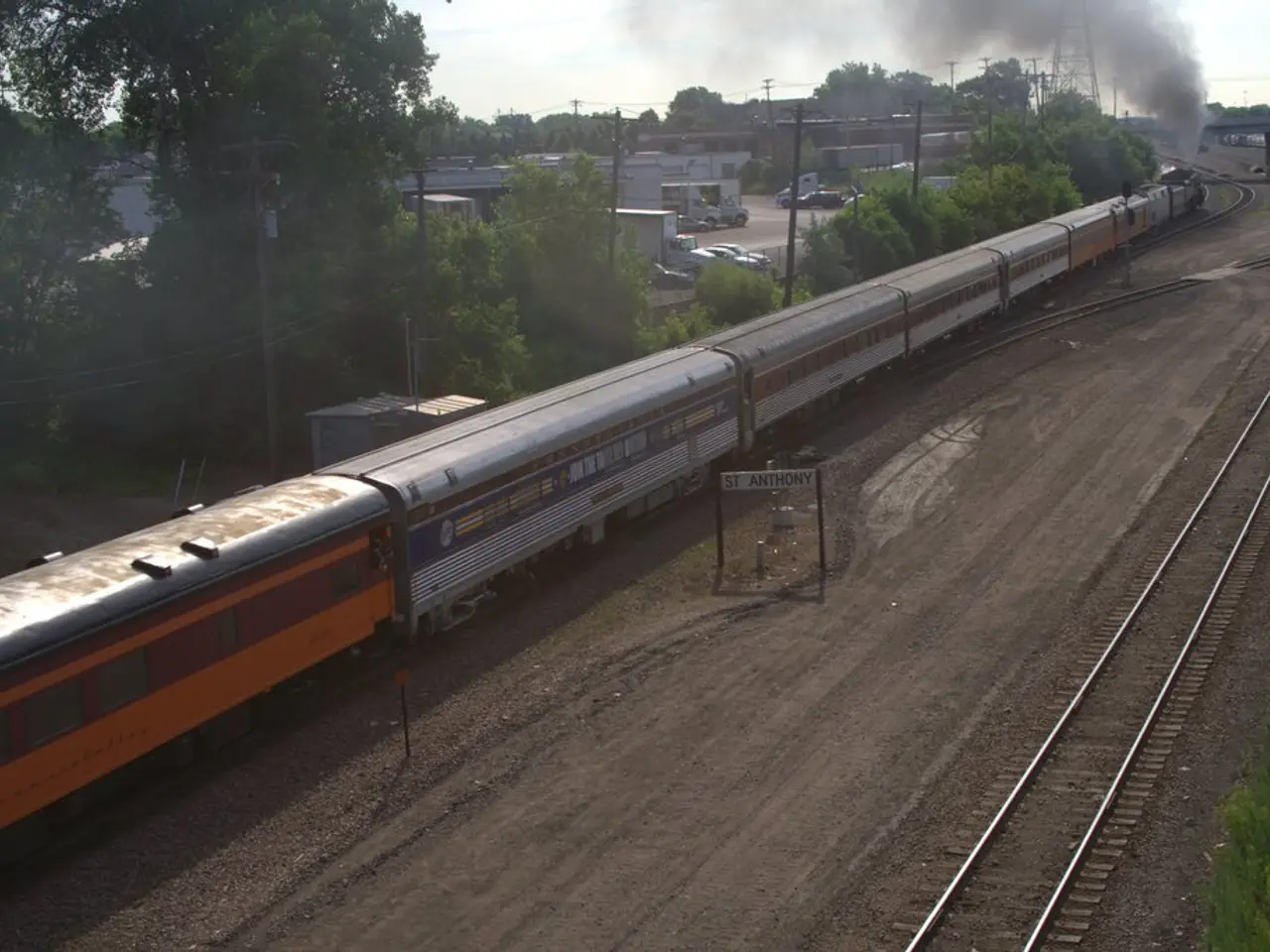Finance Ministers of the German States Allocate Billions Towards Infrastructure Development
Hitting the Ground Running: Infrastructure Billions Delivered, States Set to Cash In
Quick Options: Facebook Twitter Whatsapp E-mail Print Copy Link
Before the official coalition agreement, the Union and SPD have already agreed to a massive investment in infrastructure, with 100 billion euros earmarked for the states. The finance ministers have now decided how to divide this enormous sum among themselves, with additional funds potentially in the pipeline.
The legendary Key of Königstein serves as a basis for the distribution, taking into consideration both the states' tax revenue and population numbers. This key is recalculated annually, leading to North Rhine-Westphalia, Germany's most populous state, receiving the largest share estimated to be around 21 billion euros.
Finance Minister Lars Klingbeil, along with his state counterparts, has urged a swift agreement amid growing economic demands. The minister-presidents will now discuss the proposed division, with the Bundestag expected to debate a draft bill before the summer break.
Greens finance minister Silke Schneider of Schleswig-Holstein describes this move as a clear signal, asserting that the federal government needs to swiftly prepare implementing laws for increased planning security. Germany faces significant backlogs in infrastructure investment. In Schleswig-Holstein's case, the estimated state share is almost 3.5 billion euros.
Rhineland-Palatinate finance minister Doris Ahnen of the SPD considers this as a "decade of investments" aimed at bringing public infrastructure up to competitive standards. State consensus is stronger than ever in advocating for additional federal-state programs and funding from the special fund as well as the Climate and Transformation Fund to be invested in state and municipal projects. The needs at the local municipal level are also high, Ahnen emphasized.
This unprecedented investment in infrastructure comes following the relaxation of the debt brake for defense spending as well as the creation of a special fund with a cap of 500 billion euros in loans. These funds are intended for infrastructure repairs, such as bridges, energy grids, roads, or schools.
Economy Update: German Economy Stuck in Stagnation Despite Infra Investments
Of the 500 billion euros special fund, 100 billion will be allocated to the states, while another 100 billion will be dedicated to the Climate and Transformation Fund. The distribution of these funds among the states is yet to be regulated in the forthcoming legislation. Lars Klingbeil, the new Finance Minister, has emphasized his intention to expedite this process. Once approved, the law must pass both the Bundestag and the Bundesrat.
The Basic Law mandates that the states report their use of the funds to the federal government, with the federal government possessing authority to verify that the funds are being utilized appropriately.
Key Points:
- Infrastructure investments of EUR 100 billion allocated to federal states and municipalities.
- Distribution rules yet to be detailed in the forthcoming legislation.
- Focus areas include rail network modernization, hospital transformation, road maintenance, and digitalization 14.
- Infrastructure Future Act intended to expedite planning and approval for priority projects.
In conclusion, while the exact mechanisms for distributing the 100 billion euros among German states are yet to be defined in forthcoming legislation, broad goals have been set with an emphasis on modernizing transport and digital infrastructure, and addressing infrastructure backlogs 14.
- Infrastructure Investments
- Lars Klingbeil
- Finance Minister
- Federal States
- Special Fund
- The finance minister, Lars Klingbeil, has highlighted the need for swift regulations in distributing the €100 billion earmarked for infrastructure investments among the EC countries (European Union member states).
- The allocated funds, part of a larger €500 billion special fund, are projected to greatly impact various industries, such as rail networks, hospitals, road maintenance, and digitalization, in each federal state.
- To optimize the impact of these investments, the finance minister, Silke Schneider of Schleswig-Holstein, has advocated for the implementation of increasing planning security, implying a likely need for updated employment policies to manage the surge in demand and consequent job creation.
- With concerns about the economic stagnation persisting despite the infra investments, the finance minister has suggested leveraging Whataspp, Optendrenk, Facebook, or E-mail, among others, for coordinating and streamlining the infrastructure projects' implementation and employment policy adjustments in collaboration with industry leaders and finance experts.








